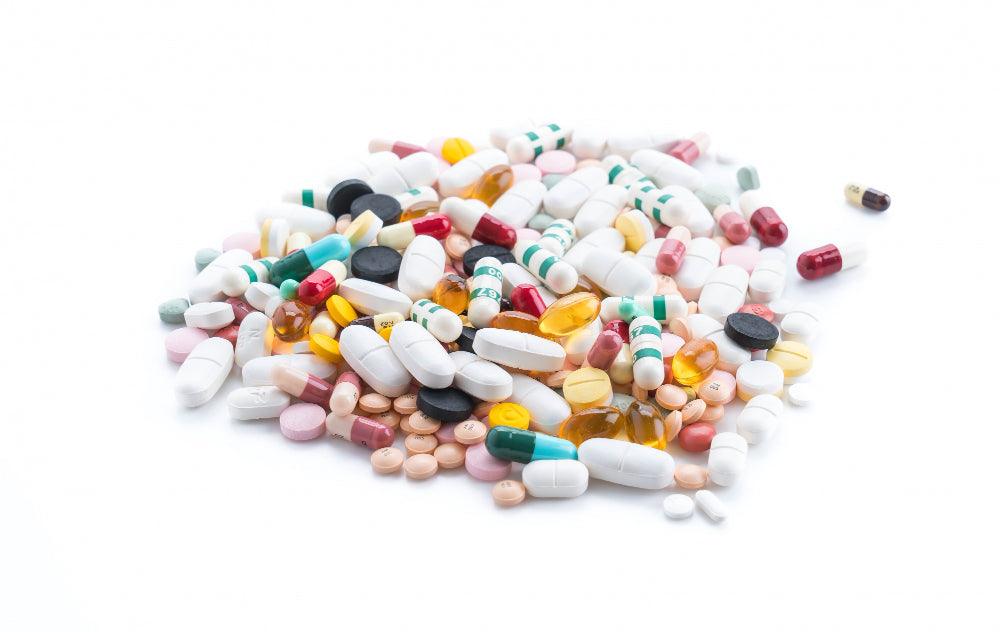What Is Bulking Agent In Tablets?


Bulking agents, sometimes referred to as fillers, are inactive substances added to food supplements, dietary supplements, and vitamin supplements to increase their size and improve the overall manufacturing process. In the pharmaceutical industry, bulking agents are essential for creating compressed tablets and capsules that are easy to handle, swallow, and dose accurately. Without these agents, many supplements and vitamins would be too small to process or consume effectively.
Commonly used bulking agents include microcrystalline cellulose, magnesium stearate, and silicon dioxide. These substances are often found naturally in foods and are widely recognised for their safety and effectiveness. For example, microcrystalline cellulose is derived from plant fibre, while magnesium stearate is a compound of magnesium and stearic acid, both of which are naturally found in the body and in various foods. Silicon dioxide, another popular bulking agent, is a natural compound present in many foods and is valued for its ability to prevent ingredients from clumping together.
The use of bulking agents is closely regulated by authorities such as the European Food Safety Authority, ensuring that only safe and approved substances are used in the production of supplements, tablets, and capsules. By increasing the volume of the final product, bulking agents make it possible to manufacture tablets and capsules that are consistent in size and quality, supporting both consumer safety and product effectiveness. As a result, these agents play a vital role in the manufacturing and delivery of vitamins, minerals, and other essential nutrients in supplement form.

Excipients are essential substances used in the formulation of tablets and capsules to ensure stability, proper delivery, and accurate dosing of active ingredients such as vitamins and minerals. A substance in this context can be either an active ingredient, which provides the intended health benefit, or an inactive substance, which serves a functional role without physiological effect; bulking agents are typically considered inactive substances. The pharmaceutical industry relies on excipients to give supplements their physical form, improve shelf life, and maintain product quality during manufacture.
Bulking agents are added to tablets to increase their size, making them easier to handle and swallow, especially since active ingredients and essential nutrients are often present in very small quantities. Many supplements use bulking agents and fillers for this purpose, and common fillers include dicalcium phosphate and magnesium silicate. These substances are also used to enhance the stability and shelf life of the final product. Dicalcium phosphate, for example, is commonly found in both food products and nutritional supplements as a bulking and anti-caking agent.
Anti-caking agents such as dicalcium phosphate and magnesium silicate, along with flow agents, are used in supplement and food product manufacture to prevent clumping and ensure smooth flow of powder ingredients during production. Table salt is another widely used anti-caking and bulking agent, commonly added to foods like sugar and flour, as well as in pharmaceutical formulations, to prevent clumping and maintain ingredient stability. This helps maintain the quality, texture, and shelf life of tablets and capsules. Flow agents are particularly important in the pharmaceutical industry to ensure consistent dosing and product stability.
Binders and excipients are used to hold the ingredients of a tablet together and maintain its form. Hydroxypropyl methylcellulose is a plant-based, allergen-free coating and thickening agent commonly used in the manufacture of capsules and tablets, serving as an alternative to gelatin. Excipients like microcrystalline cellulose, magnesium stearate, and silicon dioxide are also widely used in the pharmaceutical industry to aid in tablet formation and stability. Magnesium stearate, for example, is already present in our bodies, as are other compounds used as excipients, which highlights their natural compatibility and safety.
Nutritional value in supplements is provided by nutrients such as amino acids, minerals, and vitamins, which are commonly found in foods and food products. These nutrients are often included in nutritional supplements to support overall health. Vitamins, minerals, and amino acids are essential for various bodily functions and are naturally found in many foods.
Regulatory oversight in the pharmaceutical industry requires that excipients and bulking agents undergo clinical trials to ensure their safety and efficacy before being approved for use in supplements and medications. The ingredients list on supplement packaging should clearly identify all active ingredients, inactive ingredients, fillers, and other ingredients, allowing consumers to make informed choices and avoid certain ingredients if desired.
The stability and effectiveness of tablets depend on factors such as shelf life, absorption, and the form of the supplement—whether it is a tablet, capsule, soft gel capsule, or powder. Capsules and soft gel capsules are alternative forms to tablets that can improve absorption and make swallowing easier for consumers. The choice of form can impact the bioavailability and user experience of the supplement.
Certain ingredients, such as titanium dioxide, have been scrutinised for their potential effects on immune function and the nervous system, leading to regulatory bans or restrictions in some regions. Other additives, like sugar, may be used as fillers or excipients in some formulations, and excessive intake of certain additives, such as magnesium stearate, can have a laxative effect.
Vitamins are included in supplements in both water-soluble and fat-soluble forms. Water-soluble vitamins like vitamin C must be consumed regularly through the diet, as they are not stored in the body, while fat-soluble vitamins like vitamin D are stored in fat tissues and also play a crucial role in health. Obtaining these nutrients through a balanced diet is important for maintaining optimal body functions.
Natural compounds, found naturally or naturally found in foods, are often preferred by consumers seeking authenticity and health benefits. These compounds, such as plant extracts, minerals, and amino acids, are valued for their natural origin and bioactivity.
The manufacture of tablets and capsules in the pharmaceutical industry involves careful selection and use of high-quality excipients, bulking agents, and other ingredients to ensure product safety, efficacy, and consumer satisfaction. The process includes the use of powders, flow agents, anti-caking agents, and coatings like hydroxypropyl methylcellulose to maintain product quality and stability throughout shelf life.
Excipients are essential substances in the manufacturing process of tablets and capsules, playing a key role in the quality, stability, and effectiveness of both dietary supplements and pharmaceutical products. One of their most important functions is to serve as bulking agents. Bulking agents, such as microcrystalline cellulose, rice flour, and calcium carbonate, are commonly used to increase the size of tablets, making them easier to handle and swallow. These agents help maintain the shape and consistency of food supplements, ensuring that each tablet contains the correct amount of active ingredients.
Another critical function of excipients is to improve the flow of powders during production. Anti-caking agents like magnesium stearate and silicon dioxide are added to prevent ingredients from absorbing moisture, clumping, or sticking together. This ensures a smooth and efficient manufacturing process, especially important for vitamin supplements and other products where precise dosing of active ingredients is essential.
Excipients also act as binders, holding the active ingredients together and providing structural stability to the tablet. Compounds such as stearic acid and magnesium citrate are commonly used as binders in pharmaceutical products, helping to prevent tablets from breaking apart during storage or transport.
In addition to their functional roles, some excipients can offer nutritional value. For example, plant fibre used as a bulking agent can act as a prebiotic, supporting the growth of beneficial gut bacteria and promoting immune system health. Other excipients, like vitamin E, provide antioxidant benefits, protecting the active ingredients from degradation and helping to maintain their potency over time.
The use of excipients in tablet formulation is carefully regulated by authorities such as the European Food Safety Authority. This ensures that only safe and effective substances are used in the production of food supplements and pharmaceutical products. Supplement companies must rigorously test and select their excipients to meet strict standards for quality and safety.
In summary, excipients are vital to the manufacturing and effectiveness of tablets and capsules. They ensure that supplements and pharmaceutical products are stable, safe, and deliver their active ingredients efficiently to the body. By understanding the different types of excipients and their functions, consumers can make more informed choices about the supplements they use and appreciate the crucial role these substances play in supporting overall health and well-being. Whether you’re taking a vitamin, mineral, or herbal supplement, excipients are an essential part of the formulation, helping to deliver the benefits of the active ingredients in a reliable and effective way.
Plus get the inside scoop on our latest content and updates in our monthly newsletter.